9 Best MediaWiki Alternatives That Make Organizing Wikis Easier Than Ever!

Sorry, there were no results found for “”
Sorry, there were no results found for “”
Sorry, there were no results found for “”
You’ve probably been to Wikipedia more times than you can count. But what makes the platform so great that it’s got over 60 million people using it daily?
Well, MediaWiki may have had a huge role to play here. Not known to many, MediaWiki powers many websites under the Wikimedia Foundation, including other wiki projects like Wiktionary and Wikiquote.
Ever clicked on your favorite show’s fandom page? Those wiki pages were likely made using MediaWiki! 🤔
Great as it may be, MediaWiki can end up being too complex to set up and manage in the long run, which is why it’s smart to have a backup tool in place for the complex collaborative creation of a knowledge base.
With that in mind, we’ve put together a selection of the nine best MediaWiki alternatives to help you make the right call!
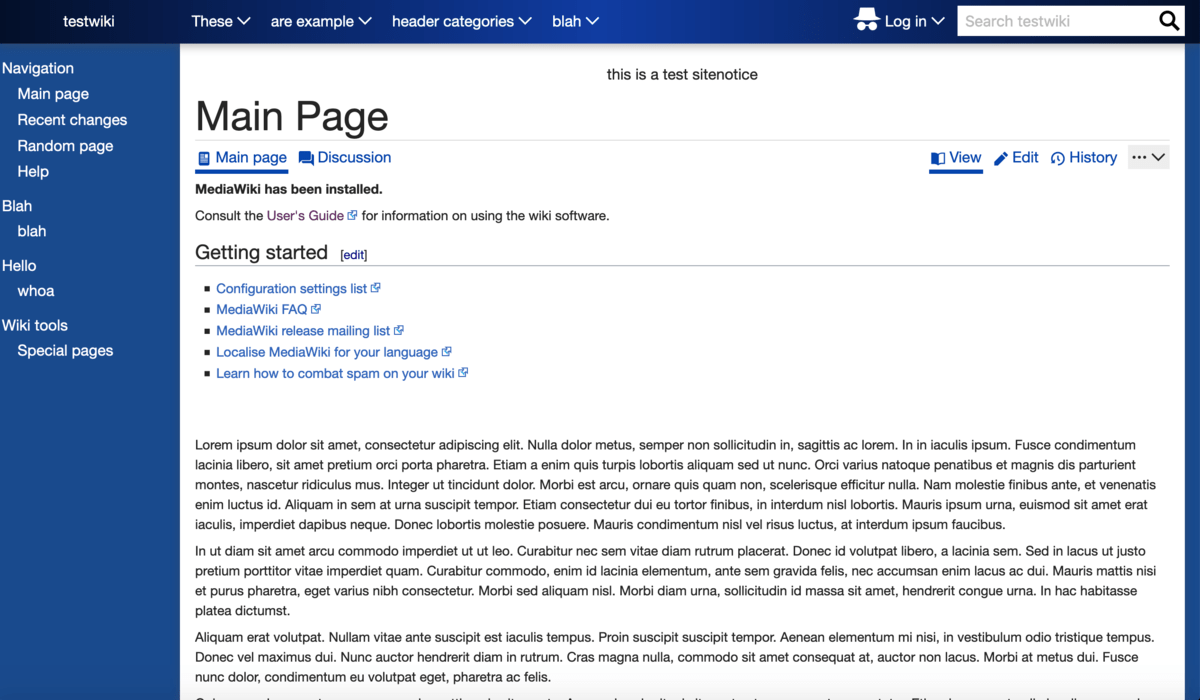
MediaWiki is a free and open-source software that allows anyone to create, organize, and present information in a simple, digestible layout. Used by thousands of businesses worldwide, it leverages the PHP scripting language to display databases.
For teams that aren’t quite tech-savvy, MediaWiki offers a wikitext format that helps you create a wiki without diving into complicated HTML or CSS codes. The platform’s Sandbox does a great job of acting like a testing field for newcomers. Within it, users can create and modify dummy pages by experimenting with various functions.
MediaWiki has revolutionized collaboration and knowledge sharing, particularly in the realm of online encyclopedias. However, due to its open-source nature, it generally doesn’t provide companies with rich editing options. 🖥️
Here are some characteristics to keep in mind before you start the hunt for your MediaWiki alternative:
We’ve curated a list of nine of the best alternatives to MediaWiki that you can find today. Our reviews will help you explore the configurations of each solution—but remember that the ultimate choice rests on the type of wiki you’re building. Let’s dive in! 🎉
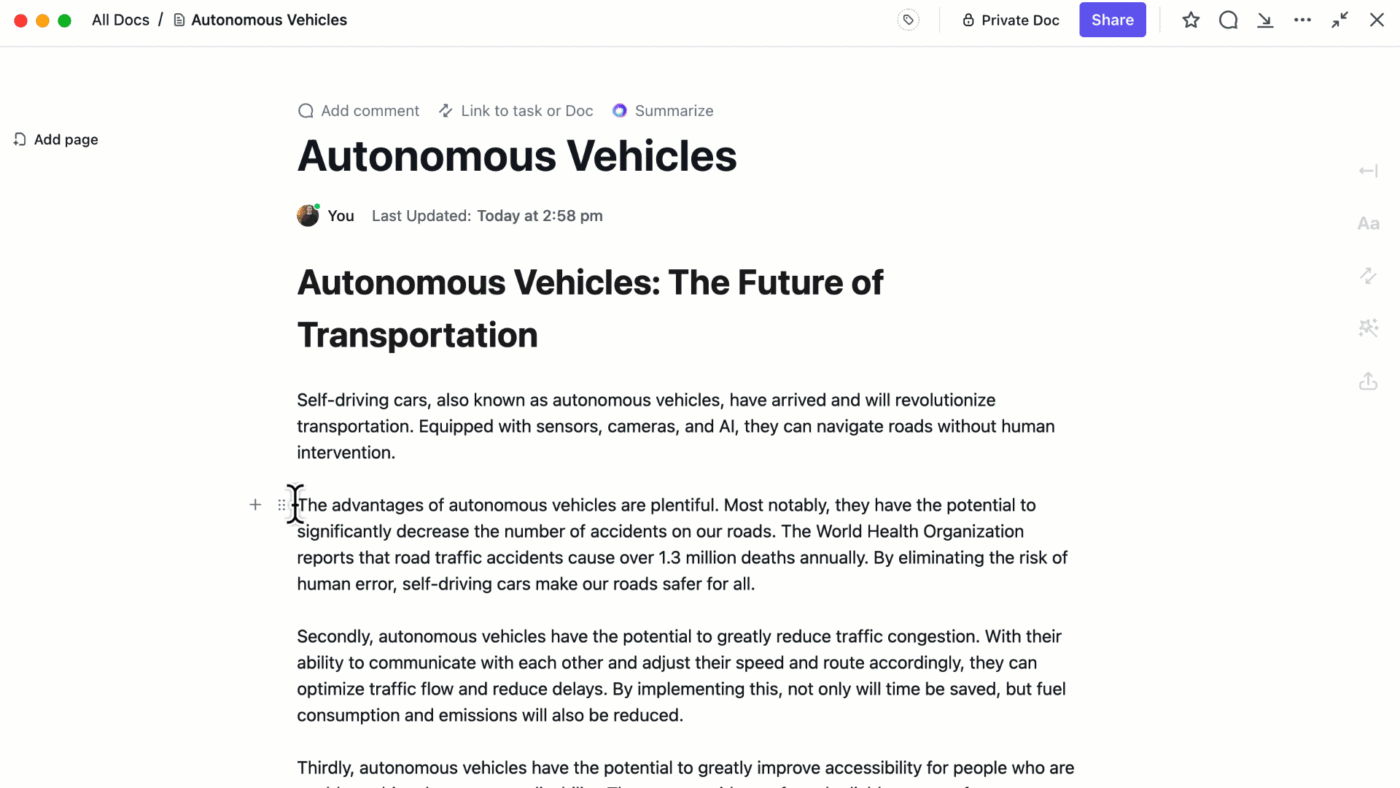
ClickUp is your one-stop documentation solution packed with top-grade features for creating wikis and project documentation, as well as data organization and real-time collaboration.
Leverage ClickUp Docs to create and maintain extensive knowledge bases while also handling document-related tasks or projects. This free-to-use tool gives you the power to:
A bonus tip: You don’t have to start from scratch—use the ClickUp Wiki Template to centralize all your wiki tasks and create an accessible, company-branded knowledge base for any use case!
With ClickUp, you can set up a Workspace hierarchy structure and adjust view/edit permissions for users. Use Everything View and Spaces to get a comprehensive view of your wikis and see who’s in charge of what. ClickUp’s Universal Search and practical file tagging features let you locate items in a jiff! 😍
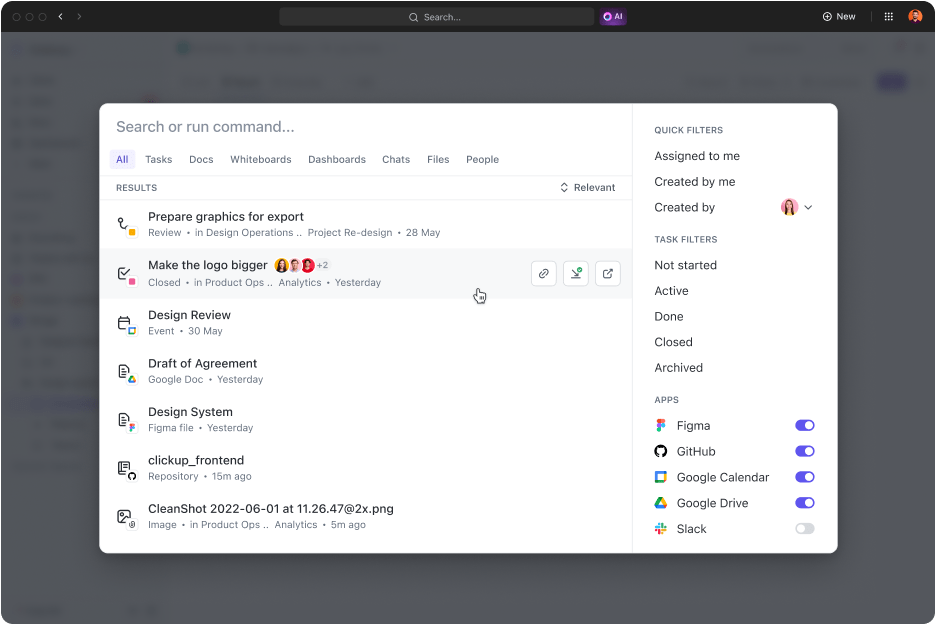
As a built-in wiki tool, ClickUp Docs is designed for collaboration. With the Instant and Live Collaboration feature, multiple users can edit a wiki in real time. They can follow name tags and multiple cursors to see what’s being worked on!
Want to ideate on wiki projects with your team? ClickUp Whiteboards is where your team can come together to brainstorm and create stunning knowledge items. You also have the ability to tag team members in specific comments or get them to proof workflows!
To save time, leverage the power of ClickUp AI and never run out of ideas to complete a wiki! Just throw prompts at this AI sidekick and get vast documents like project briefs and test plans written within seconds! It also serves as a full-time translator with the ability to navigate 10+ languages.
*All listed prices refer to the yearly billing model
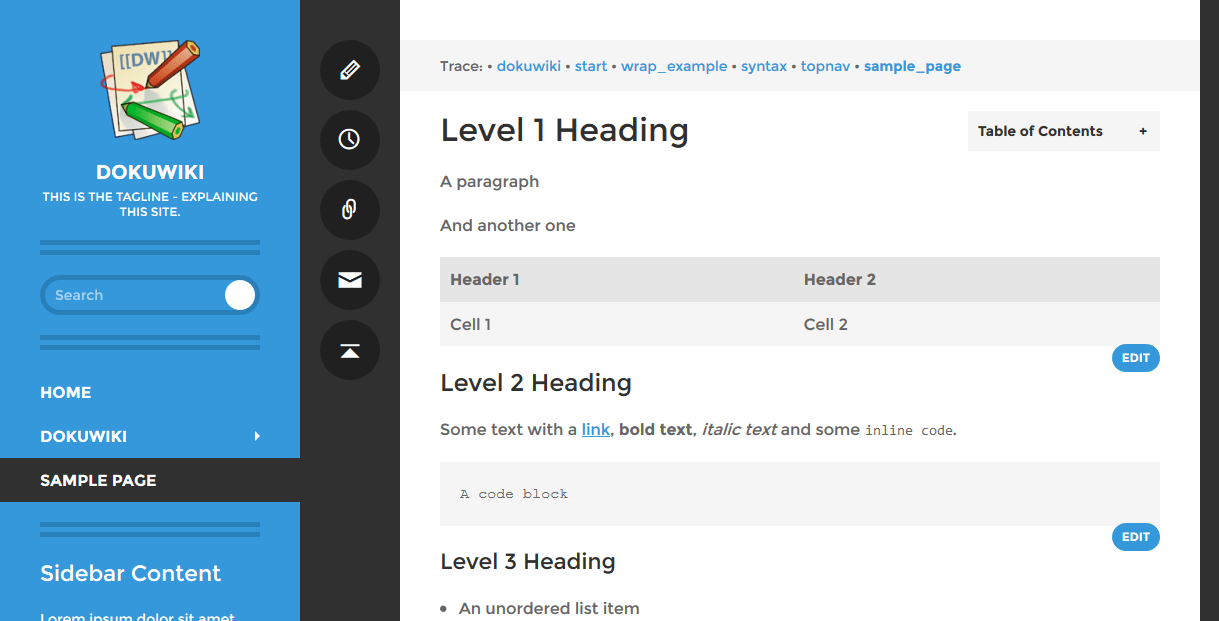
Similar to MediaWiki, DokuWiki also runs on the PHP programming language. It doesn’t require a database since it saves your work as plain text files. Its clean and readable syntax makes it easy for newcomers to organize their wikis.
DokuWiki has built-in access controls and authentication connectors. Additionally, you can use the platform as an internal content management system (CMS) or even a project development workspace for your company.
Users are given the choice to download and customize any template they’d like and create wikis for a specific use case. These include templates for knowledge base, WordPress, and websites.
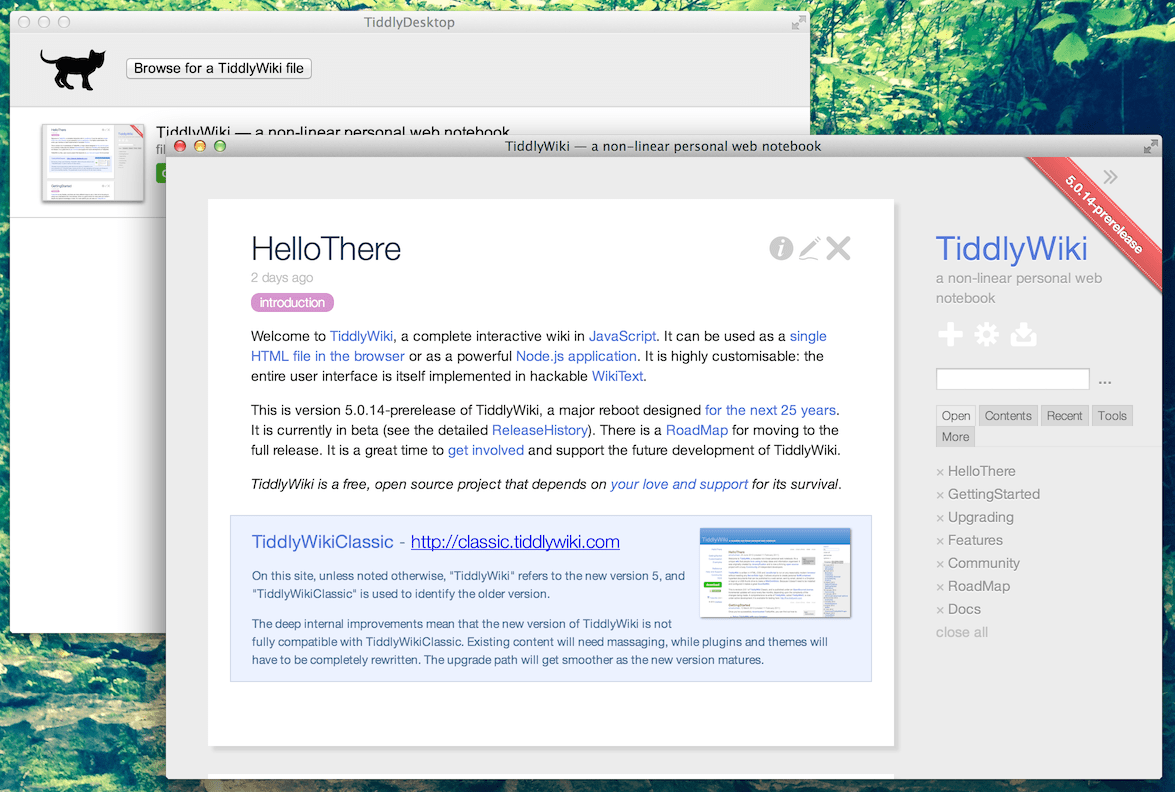
As an online non-linear notebook, TiddlyWiki allows you to keep notes, reminders, stories, or any other document, including wikis. In fact, it also lets you choose where you’d like to save your data, ensuring your wikis are always accessible.
Enable autosave to prevent your wikis and documents from accidental deletion. It gets triggered by both the Ok and Delete buttons during editing, while the drag-and-drop allows the portability of documents. 🆗
If you’re feeling fancy and want to add some spice to your wikis, you can navigate TiddlyWiki’s custom vector icon gallery. With various icons such as ticks, arrows, and even the original Twitter logo (now X), you can make your writing more presentable. The platform further allows you to restrict customizations with its Safe Mode.
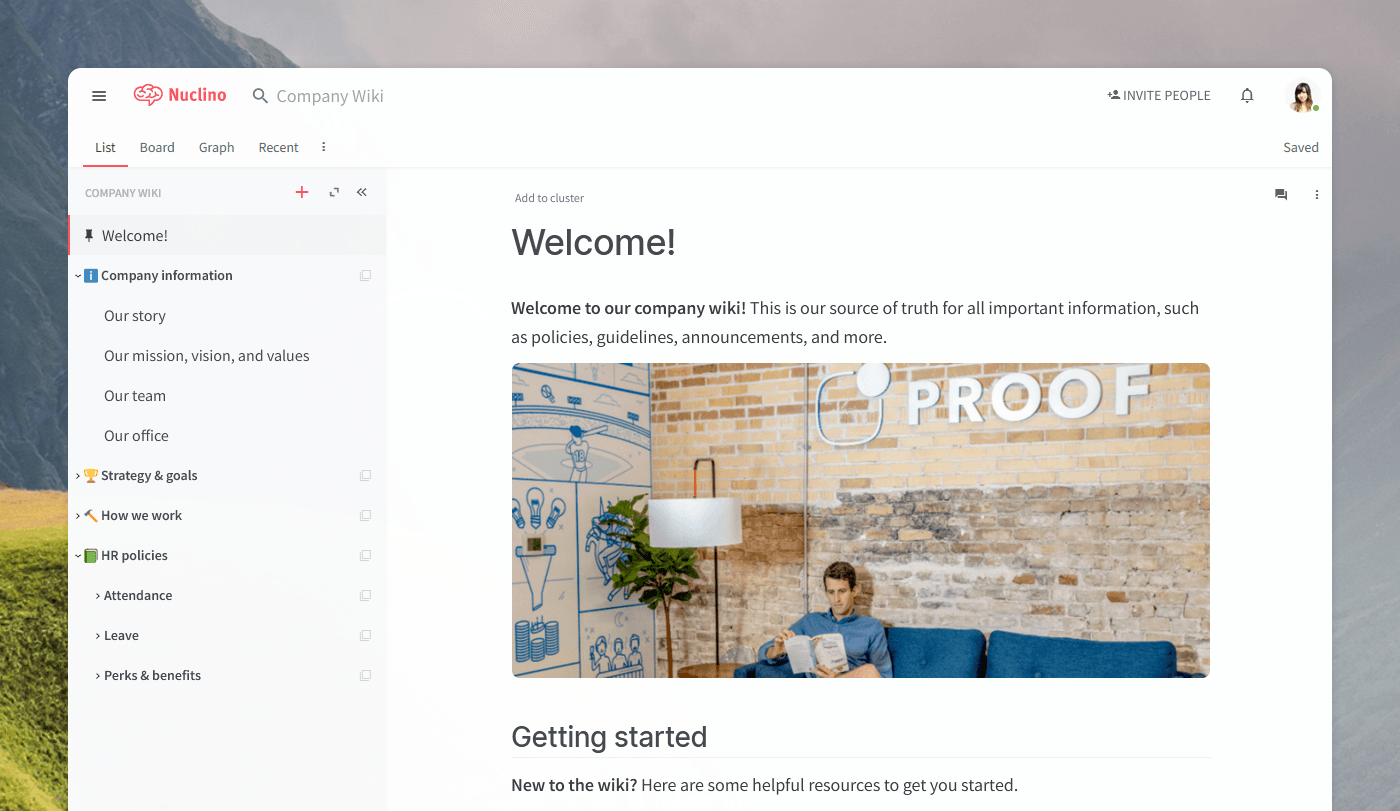
As a MediaWiki alternative, Nuclino is exceptionally lightweight and mainly focuses on providing the essentials and being quick. With an easy drag-and-drop editor, teams can edit on a single workspace seamlessly.
Despite the minimalistic interface, you can create comprehensive wikis on the platform. Add notes, assign tasks, embed files, and more!
With multiple views, you can pull up anything you need, whether a document or a specific task. The same feature lets you filter data and get more precise knowledge items for all team members.
Nuclino lets you leave comments and provide feedback on wikis, allowing for timely production. You can also leverage Nuclino Sidekick, an AI assistant that can compose blog posts and simplify technical content.
*All listed prices refer to the yearly billing model

GitBook is a modern documentation platform where technical teams can document everything from product launches to different internal knowledge bases and APIs. It has an uncluttered interface that requires minimal setup to run.
Mainly used as a platform to store comprehensive project data, GitBook supports importing from other platforms such as Google Docs. This helps you get started right where you left off, in case you were writing your wiki content in Google Docs. 📝
GitBook is excellent for teams needing an uncomplicated and collaborative tool for creating, organizing, and publishing documentation, such as product development processes or research plans.
With multiple integrations, you can receive alerts from other apps within GitBook and suggest changes under the Discussions option.
*All listed prices refer to the yearly billing model
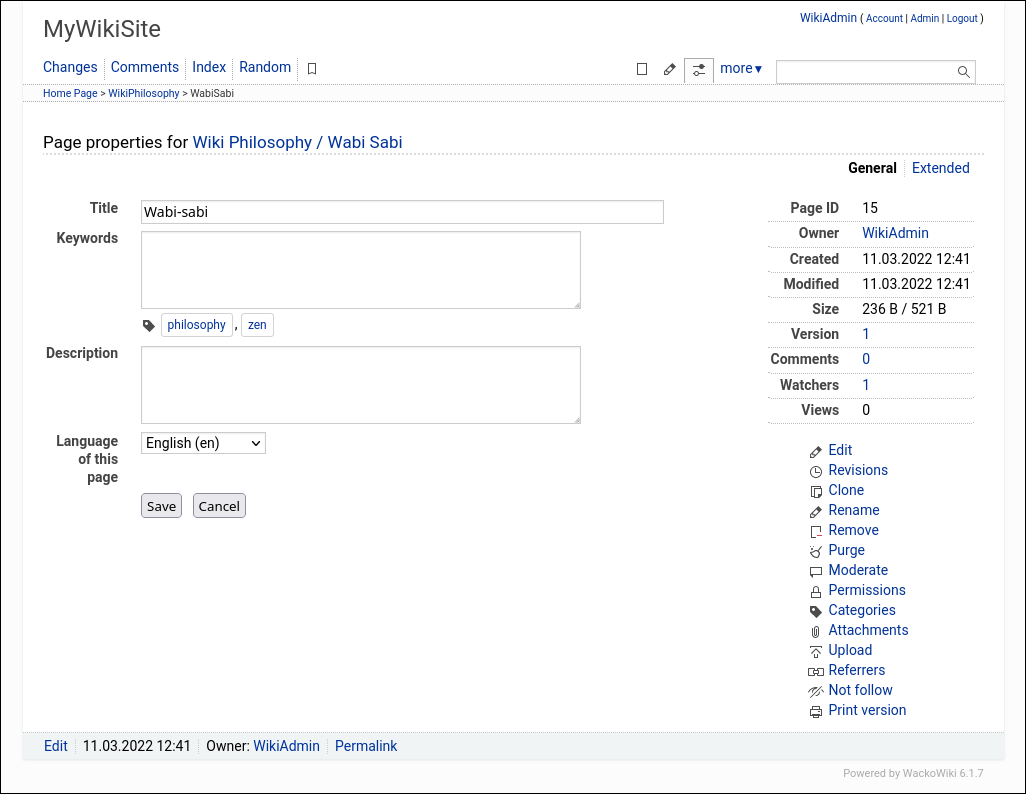
WackoWiki is a functional wiki engine that provides an intuitive WYSIWYG (What You See Is What You Get) editor to help you make document changes within minutes. The platform supports multiple languages and is compatible with MariaDB/MySQL.
Your team members can leave comments to suggest improvements for all your wikis. The comments trigger email notifications, making it easy for creators to stay in the loop.
On top of that, WackoWiki has multiple design themes that you can use for your projects and thumbnails. For the nerds, the platform has several cache levels that reduce the time it takes to respond to your clicks—this function optimizes your workflow through quick processing speeds! 😏

As the name suggests, this platform lets you create walls in the form of whiteboard-like visual spaces that you and your team can collaborate in. Walling uses the phrase Beauty Meets Function to describe itself. Cute, right? 😊
Whether it’s tables, tasks, documents, or your wiki content, you can write and design almost anything you fancy. With productivity as the main focus, users receive push notifications about task due dates on their phones.
Heavy customization lets you change the color of everything right from the background to each section and text. Users also have the Walling AI assistant to delegate tasks and set up their visual whiteboard more efficiently.
*All listed prices refer to the yearly billing model
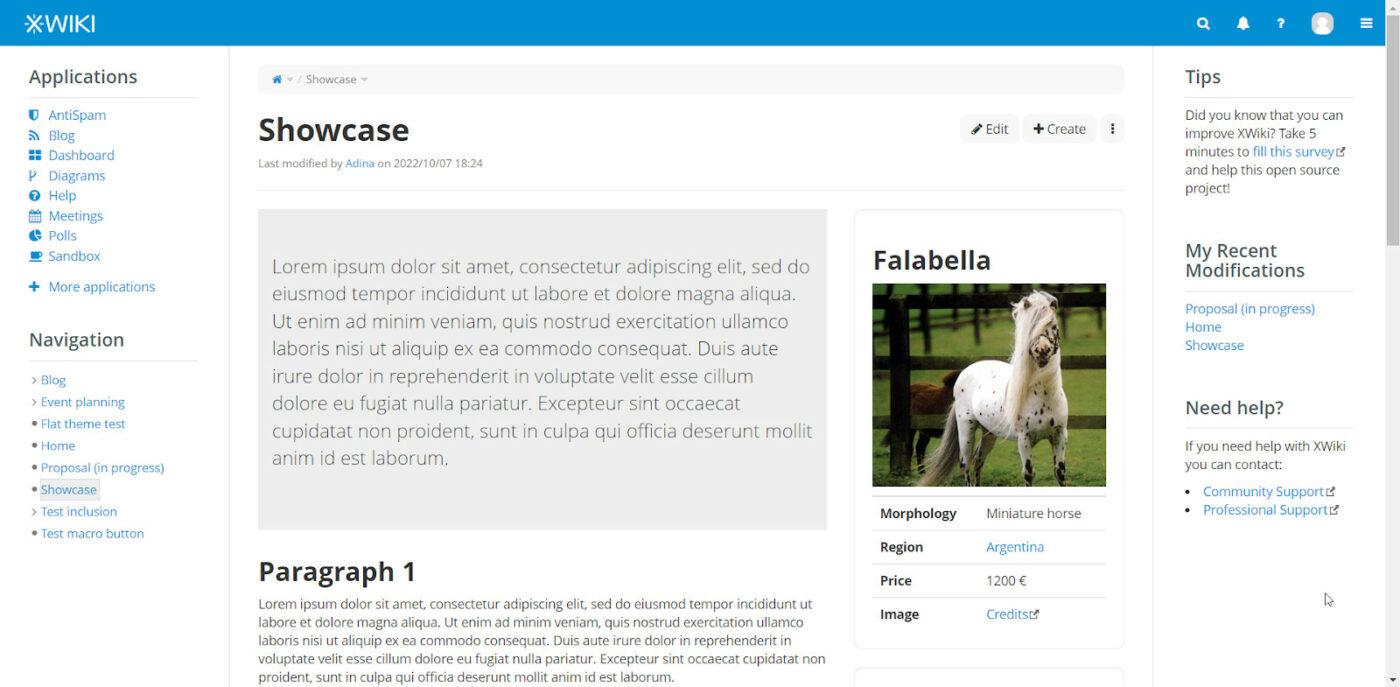
XWiki is an open-source wiki software solution written in Java. It provides users with a simple WYSIWYG editor. You can import files such as CSV and Excel, as well as export them into multiple formats, including PDFs, RTF, and XML.
One of the main features of XWiki is that it allows the storing of structured data in relationship databases while providing a RESTful API to integrate it with your other applications.
When it comes to collaboration, XWiki allows teams to add and remove members from a wiki, edit permissions, and receive notifications via RSS feeds to know when a change has been made. Using version control, you can track edits made to a wiki or even restore a previous iteration.
*All listed prices refer to the yearly billing model
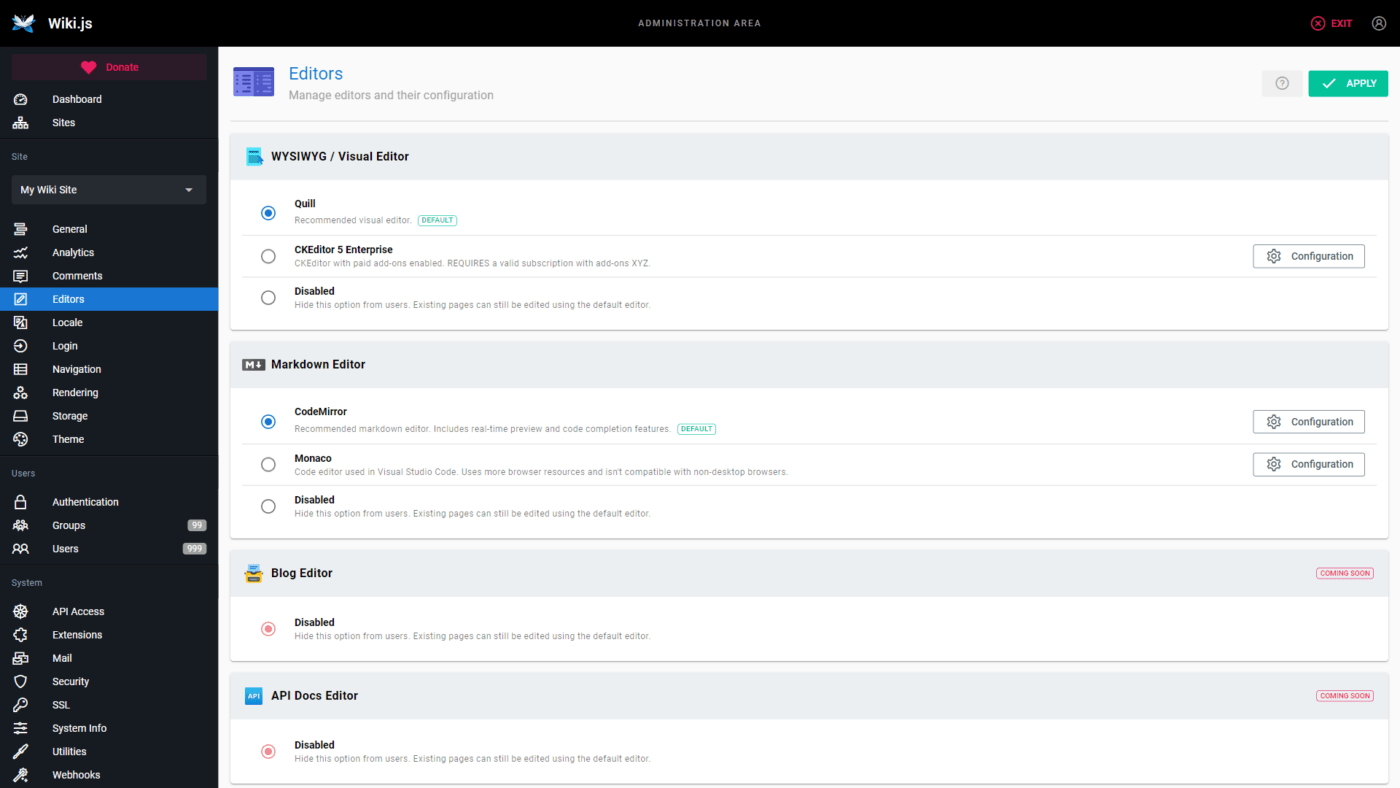
Available on the AWS and DigitalOcean marketplaces, Wiki.js is a wiki engine that runs on node.js and is written in Javascript. This free software provides a number of powerful configurations, such as the ability to enable Pandoc to convert between markup formats.
You can use multiple editors here, including WYSIWYG, WikiText, or even the good old HTML. Wiki.js also lets you customize the overall appearance of your wiki—set it under the light or dark mode or design and insert visual elements like flowcharts and UML diagrams.
You’re given the option to store data either on the cloud, GitHub, or on your local storage device. Add team members in just a few clicks, edit their permissions, and bolster extra security using 2FA. 🔏
The MediaWiki alternatives we presented will help you create wikis with minimal effort.
But if you’re still second-guessing things, it’s worth giving ClickUp a try! Use this project management tool to manage your documentation, generate written content with AI, and make your wiki stand out from the rest!
Sign up for a free account and start creating top-notch wikis in minutes! 💃
© 2026 ClickUp